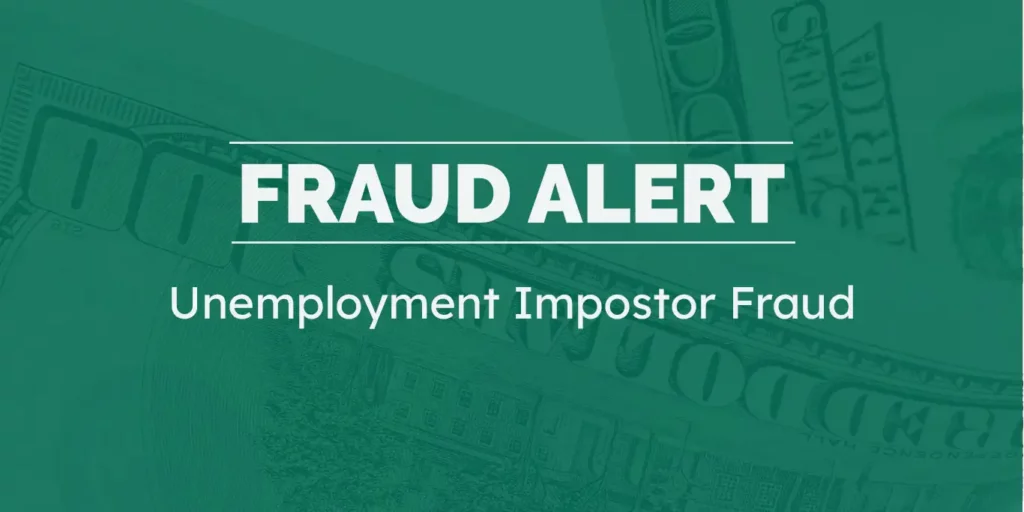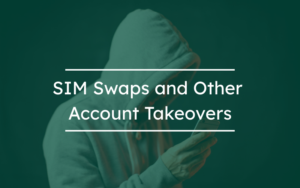An unfortunate side effect of the COVID-19 pandemic has been the high number of people needing to file unemployment claims. While unemployment insurance exists to help people manage difficult financial situations, it can also be a target for cyber-criminals to commit fraud. To help educate consumers, we have some tips to avoid becoming a victim of what’s known as unemployment impostor fraud.
Unemployment insurance is an important tool when you are out of work and need financial assistance while job searching. Unfortunately, cyber-criminals try to take advantage of this crucial program. Due to this consumers need to know how to protect themselves and what to do if they become a victim.
If You’ve Been Victimized…
You may learn you are a victim of unemployment impostor fraud through a notification from your employer. This notification will state that someone has filed an unemployment claim in your name. You may also receive communication from the state in the mail. If you have already been victimized, you may discover that someone else is already using your name to collect unemployment benefits when you attempt to file an unemployment claim yourself. If you believe you are a victim of unemployment impostor fraud, take the following steps:
-
- Report the fraud. Contact your employer, your bank, and Iowa Workforce Development to report the issue.
- Watch your accounts. If you see a payment in your bank account that appears to be an unemployment benefit and you did not file a claim, DO NOT spend it. Report it to Iowa Workforce Development immediately to learn how to return the money or request your bank return the unemployment benefit payment if received via ACH.
- Check your credit report. If a cyber-criminal has attempted to file a fraudulent claim in your name, they have obtained some of your personal information through other means, such as a data breach. Request a credit report and review it for any suspicious accounts.
How to Prevent Yourself From Being Victimized…
As with all types of cybercrime, the best way to prevent becoming a victim is to protect your data. Follow these tips to keep your data secure.
-
- Be suspicious of any email, phone call, or direct mail requesting you to provide personal information, especially if the communication attempts to induce panic or threaten you into making a hasty decision.
- Know how to spot phishing attacks. Cybercriminals know how to structure emails so they appear to come from legitimate or known sources. Carefully inspect any communication for misspellings or grammatical errors, which may indicate the email is fraudulent.
- Do not click on links or download attachments in suspicious emails. If you are unsure of an email’s legitimacy contact the company that sent the communication to verify whether it is legitimate.
- Never give out personal information online or over the phone. Guard this information to keep cyber-criminals from using it to steal your identity.
Learn More
- To learn more about how to protect yourself from unemployment impostor fraud or other types of cybercrime, contact any of our bank branches to talk to a personal banker.







